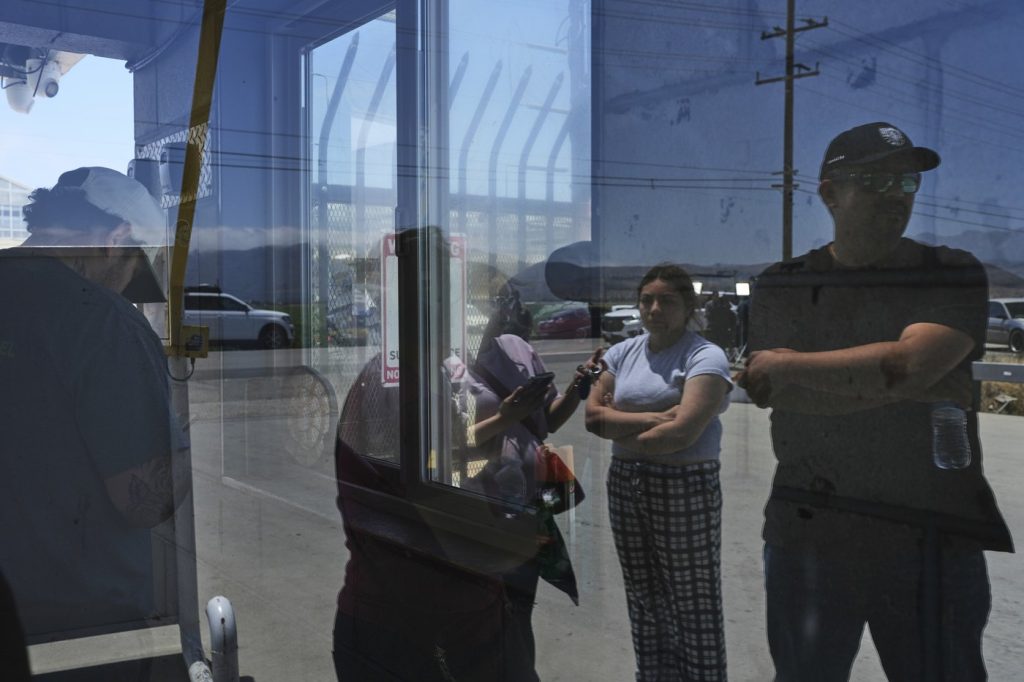LOS ANGELES (AP) – A federal judge has mandated that the Trump administration cease indiscriminate immigration stops and arrests in seven California counties, including Los Angeles. This decision follows a lawsuit filed by immigrant advocacy groups, which accused the Trump administration of systematically targeting brown-skinned individuals in Southern California as part of its intensified immigration enforcement measures.
The plaintiffs in the lawsuit include three detained immigrants and two U.S. citizens, one of whom was arrested despite presenting identification to immigration agents. The filing, which took place in U.S. District Court, sought to block what the plaintiffs described as unconstitutional tactics employed during immigration raids. Advocates allege that immigration officials engaged in racial profiling, conducted warrantless arrests, and denied detainees access to legal counsel at a downtown Los Angeles facility.
Judge Maame E. Frimpong responded to the emergency motion by issuing temporary orders to halt the federal government's practices, with a particular emphasis on protecting detainee rights. The judge noted that there was a “mountain of evidence” presented during the hearing that substantiated the claims of constitutional violations. These orders are intended as temporary measures while the legal proceedings continue.
The response from the White House came swiftly, asserting that “no federal judge has the authority to dictate immigration policy— that authority rests with Congress and the President.” Spokesperson Abigail Jackson expressed the expectation that the ruling would be overturned on appeal, claiming that enforcement operations require detailed planning and execution, which falls outside the scope of judicial authority.
In recent weeks, immigrants and Latino communities throughout Southern California have been on high alert due to an escalation in arrests at locations such as car washes, Home Depot parking lots, and immigration courts. Tens of thousands have taken to the streets in protest, demonstrating against the raids and the deployment of the National Guard and Marines in relation to immigration enforcement.
The court’s order also extends to Ventura County, where federal agents detained multiple workers at a cannabis farm on the same day that the court hearing was conducted. This incident resulted in clashes with protesters and injuries among demonstrators. The American Civil Liberties Union (ACLU) characterized the recent uptick in immigration enforcement as driven by an “arbitrary arrest quota” that relies on broad racial stereotypes.
The lawsuit details instances where federal agents detained individuals solely based on their Latino appearance and attire. For example, immigration agents reportedly arrested individuals who were dressed in construction clothing, and witnesses have described situations where federal agents apprehended anyone who appeared Hispanic in locations like swap meets and Home Depots.
In contrast, U.S. Department of Homeland Security Assistant Secretary Tricia McLaughlin vehemently denied the allegations, arguing that claims of racially targeted law enforcement are “disgusting and categorically FALSE.” She asserted that enforcement operations are specifically targeted and based on thorough investigative work.
The ACLU attorney Mohammad Tajsar highlighted the case of Brian Gavidia, a U.S. citizen who claimed he was subjected to physical assault solely because of his Latino identity while working at a tow yard situated in a predominantly Latino neighborhood. Tajsar raised concerns about why immigration agents detained all but two white workers at a car wash, prompting questions about the role of race in those arrests.
Representing the government, attorney Sean Skedzielewski contended that there is no evidence that race was a factor in the arrests, asserting that agents consider numerous circumstances, including prior surveillance. He explained that the Department of Homeland Security implements policies and training to ensure compliance with constitutional mandates.
As part of the ruling, visiting attorneys will now have access to the U.S. Immigration and Customs Enforcement facility in downtown LA, designated as “B-18,” seven days a week. The order mandates that detainees also receive access to confidential phone calls with their attorneys.
Attorneys from various legal advocacy organizations have reported being denied entry to the B-18 facility on multiple occasions, sometimes amid claims of chaotic protests. They contend that detainees are not properly informed of their legal rights or access to counsel, and the conditions within the facility have been described as inadequate.
The Friday ruling aims to strictly prevent federal immigration officials from using race, ethnicity, language, or certain occupations as the basis for initiating stops or arrests. Thus, the court’s decision is a significant development in the ongoing legal battles surrounding immigration enforcement practices in the United States.










